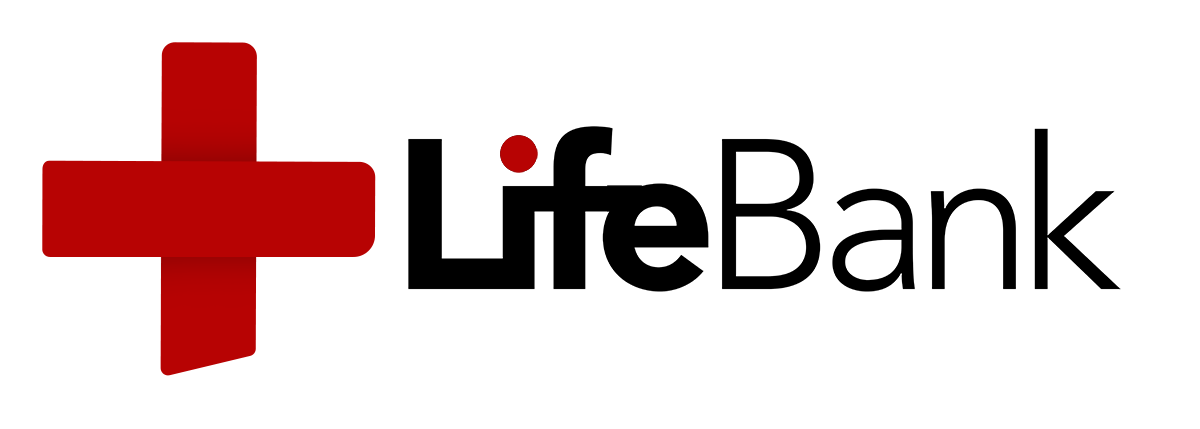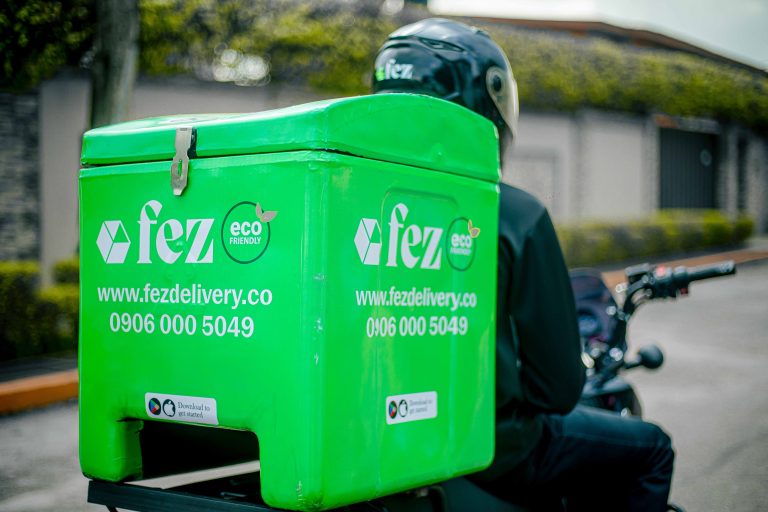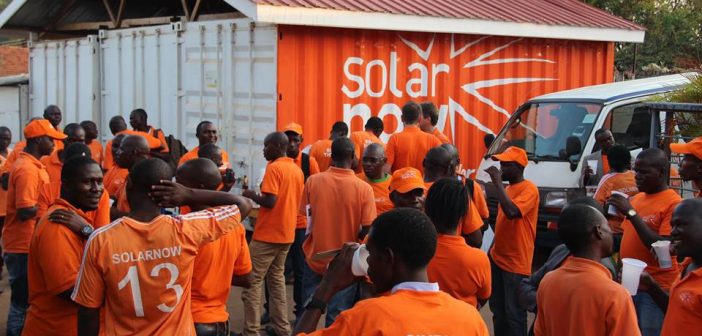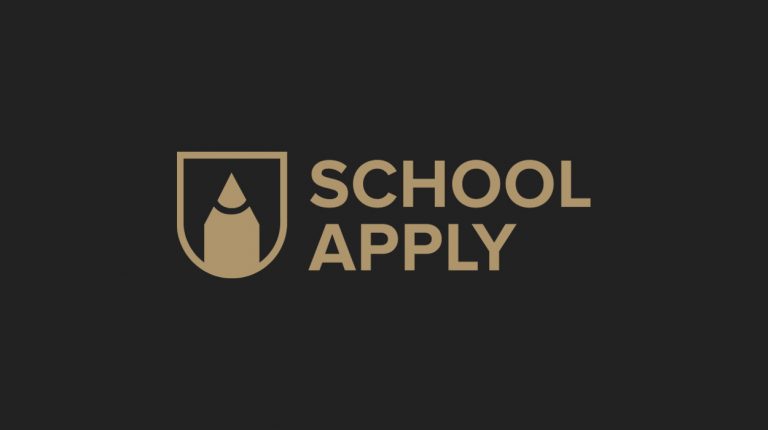Nigerian Startup Lifebank Selected at Merck Accelerator and moves to Germany

The technology and science company Merck recently, announces its ten new startups taking part in the Merck Accelerator. The teams are operating in the fields of life science, healthcare, performance materials and additional search fields. One of the startups comes from Lagos, Nigeria: Life Bank solves the problem of shortages in medical supplies by collating inventory information from thousands of medical suppliers using a combination of mobile and web applications. Life Bank now moves to Darmstadt, Germany to the headquarters of Merck in order to develop their idea further. The team receives Mentoring as well as a funding from Merck.
Merck, a leading science and technology company, announced the startups that joined the sixth round of the Merck Accelerator program in March. Ten startups spanning the industries of healthcare, life science, performance materials, and other related business fields will be joining the Merck Accelerator in its new Innovation Center in Darmstadt. The startups come from Europe, Africa, and South America, and will be based in Darmstadt for the three months duration of the program. The Merck Innovation Center has moved into a new, more spacious building. The ten teams will be the first startups to enjoy the new Innovation Center, which is the center piece of the Darmstadt site’s development as Merck’s global headquarters.
Michael Gamber, Head of the Innovation Center, commented: “We are delighted to be here welcoming the ten startups to Darmstadt. Being connected to the startup ecosystem is an essential part of developing collaborative projects with our colleagues from the business sectors, whilst also exploring our innovation fields such as bio-sensing and interfaces – from the startup perspective. This year we received well over four hundred applications. With such a high volume of excellent applications from startup teams, it was difficult to narrow down our selection but we now have a great group of teams joining us.”
For the first time, a femtech startup will be joining the Merck Accelerator: Syrona Women is developing tests that enable women to check on their reproductive health from the comfort of their own home. Female health technology not only presents an industry that is ripe for disruption, but an opportunity to improve the lives of women across the globe. The Accelerator’s other startup teams are also working on solutions with life-changing impact. From optimizing the medical supply chain to employing machine learning technology that renders experimentation and diagnostics more efficient, the startups vary widely in the needs that they address.
About the Merck Accelerator
The Merck Accelerator program supports young companies in their seed-phase with a focus on healthcare, life science, performance materials, and other related business fields. The program focuses primarily on digital business models. Selected companies will receive mentoring and in-depth coaching from a network comprised of over 50,000 experts from 66 countries. The Accelerator opens up opportunities for startups’ future collaboration with Merck and helps to introduce startups to the contacts they need to close their first deals. Additionally, the startup teams benefit from financial support of up to € 50,000, as well as from work space at the Merck Innovation Center in Darmstadt, where they can develop product prototypes and exchange ideas with other startup teams and Merck experts.
About the new Innovation Center
Located at the Merck headquarters in Darmstadt, the Merck Innovation Center links a creative working environment with a culture of openness and exchange between employees and external startups, visionaries and companies from around the world. Spanning six floors and 7,100 square meters, the new Innovation Center building offers startups the space to develop their ideas, both conceptually and physically. It contains a co-creation space, a multimedia library, an auditorium, a recreation area, and a makerspace. The scientific multimedia library provides voice-based access to journals and e-books, as well as other scientific resources such as VR and 3D applications. The makerspace facilitates rapid prototyping using a variety of technologies, and maintains a network of prototyping partners both within the company and externally. Additionally, the Innovation Center is home to a variety of internal ideation projects led by Merck employees.
The startups from the Merck Accelerator Darmstadt, Germany:
Intelag
This startup from Santiago, Chile, has created a technological aid for fruit and vegetable growers, that tracks field conditions in real-time and interprets the data for efficient farm management. The Intelag team, headed by Nikita Gulin and Sergio Esteban Cardenas Espinoza, has developed patent-pending wireless monitoring equipment that collects data from fields, as well as machine-learning powered software that uses this data to provide forecasting and farm management KPIs. Their technology allows Intelag’s clients to forecast production disruptions and overall yields on their farms, and thereby significantly impacts pricing, market intelligence, and supply chain efficiency.
Biotx.ai
Based in Berlin, Germany, Biotx.ai has developed a machine learning platform that identifies significant patterns in data and uses these to create novel diagnostics and therapies. Biotx.ai’s machine learning techniques are specifically designed for high-dimensionality biomedical data, enabling them to find the complex interactive patterns hidden in such ‘wide’ data. This means that their biomarkers can accurately predict what treatment works best for each individual patient. They can also be used for patient stratification in clinical studies to ensure that the patients included possess the indications being targeted by the drugs on trial.
ChemAlive
ChemAlive, a startup from Lausanne, Switzerland, offers a user-friendly system that allows non-experts to perform state-of-the-art quantum chemistry calculations. Their software is driven by machine learning that allows the chemical industry to model chemistry, improve yield, and generate new chemical leads. The ChemAlive platform is designed for cheaper and faster access to computed chemical data with no expertise, hardware or software barrier through a SaaS model executable by any chemist online. By democratizing quantum chemistry, ChemAlive provides ready access to critical data, helping the chemical community to achieve greater efficiency, greener chemistry, and reduced time-to-market.
digi.bio
Hailing from Amsterdam, the Netherlands, digi.bio has leveraged digital microfluidics, integrated sensors, and AI to create a biotechnological platform that facilitates efficient scientific experimentation. Led by Federico Muffatto, Jelmer Cnossen, and Frido Emans, the team at digi.bio has developed a platform that performs automated laboratory experiments that are miniaturized and integrated within a cloud dashboard that controls operations, records data, and uses AI technology to optimize experimentation. In this way, performing experiments becomes as simple as using a computer, and hands-on time for researchers is reduced by up to 80%.
BioXplor
With its headquarters in Berkeley, California, BioXplor is an AI platform for data-driven hypothesis generation and novel predictions in biomarker and drug discovery. The in silico discovery platform is built on the intersection of big data, artificial intelligence, and high performance computing. The data platform accelerates knowledge generation and novel predictions from structured and unstructured life science data. The platform is optimized for drug repurposing, experiment design, biomarker and drug target identification, and is currently being employed in research into cancer and rare diseases.
MUNDITECH
Based in Frankfurt, Germany, MUNDITECH offers two new environmentally friendly technologies that can improve hygienic conditions without the use of conventional biocides. Led by Dr. Klaus Schepers, MUNDITECH’s technology can be used as solutions in healthcare, food, personal care, and water systems. The first of these technologies is based on the release of hydroperoxide radicals from a catalyst that can be reactivated upon contact with air or hydrogen peroxide (POM-technology). The second technology that MUNDITECH has developed is a polymer with inherent antimicrobial functionality that can kill microorganisms without using any biocidal additives.
LifeBank
This startup from Lagos, Nigeria, solves the problem of shortages in medical supplies by collating inventory information from thousands of medical suppliers using a combination of mobile and web applications. Led by Temie Giwa-Tubosun, Ayo Michael Olufemi, and Adedayo Ayodele, the LifeBank team uses a hub and spoke model to implement a delivery process that distributes medical supplies and healthcare products to all hospitals, both rural and urban, within 55 minutes – all while maintaining cold chain. LifeBank is also exploring the possibilities offered by AI technology to better match supply to the most critical demand.
Wingcopter
The startup Wingcopter, from Darmstadt, Germany, has designed and manufactured the world’s first vertical take-off and landing, unmanned aircraft system on the market. Headed by Tom Plümmer, Jonathan Hesselbarth, and Ansgar Kadura, the team at Wingcopter has combined the advantages of a copter with the benefits of a plane. Wingcopter’s unique motor configuration provides maximum stabilization for the Wingcopter at every tilt angle, even during forward flight, allowing it to reach top speed, cover long distances, and stay airborne for a long time. The Wingcopter is suitable for both private and public use, and is ideal for industries such as film and logistics.
Salve Tech
Headquartered in London, the United Kingdom, Salve Tech offers a mobile app that improves patient safety and outcomes for clinics providing life-changing treatments. The team is led by Charlie Kenny, Elin Ng, and Alex Hinton, and works to guide patients through specialist healthcare procedures and help clinics offering these services. Salve Tech’s app syncs directly with the clinic’s Electronic Patient Record to send patients information relevant to their treatment stage, diagnostic results, and automatic reminders about their medication and appointments. The app also provides an instant messaging platform for patients to contact clinics with their queries. Clinics can also use Salve Tech as a web-portal to monitor patient progress and gain performance insights.
Syrona Women
Syrona Women, from Cambridge, the United Kingdom, is developing a fast point-of-care test using proprietary technology to enable women to independently look after their reproductive health without a visit to the clinic. The technology enables the integration of multiplexed biomarker diagnostics to detect STIs, endometriosis, and gynaecological cancer from menstrual blood swabs, and requires minimal user intervention or technical expertise. The project looks to eliminate the need for users to complete any external preparation and will offer capability to enable speed results in a rapid time frame, low costs – enhanced by a disposable test strip, and high performance with regard to sensitivity, specificity, and accuracy.







